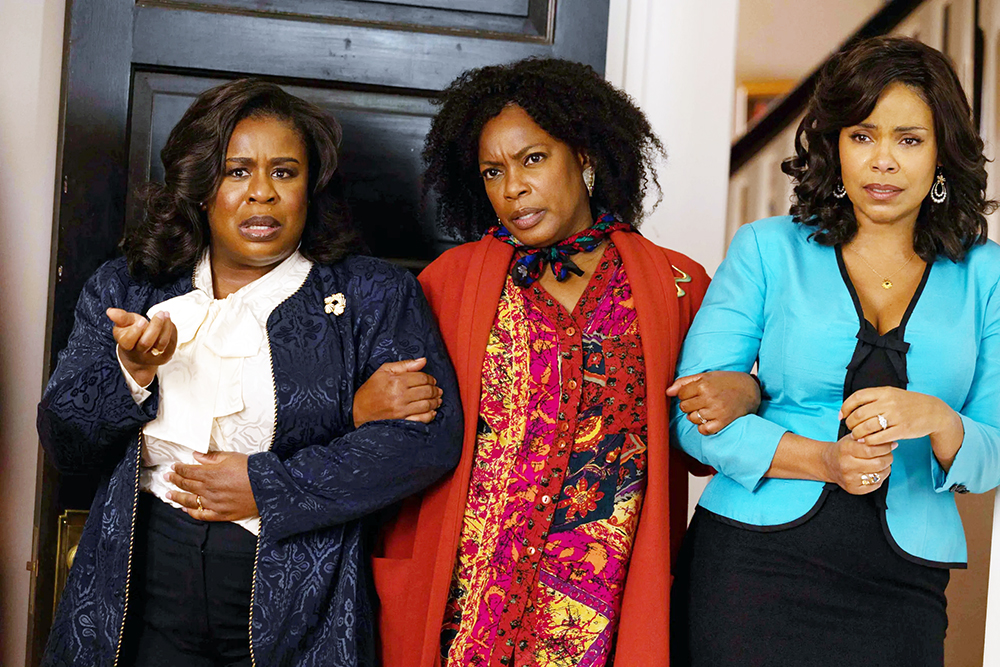One of the most difficult tasks filmmakers have is catching the complex dynamics of female friendships. From revenge-seeking first wives to teenagers sharing a magical pair of pants, writers have tried to discover how to frame such stories.
It’s not uncommon for these movies to convey the idea that these relationships are essential to tackling adversity, portraying femininity as a bond that can transcend both time and the nature of their unique situations. But these themes are not monolithic; they are dependent on setting, societal norms, and race.
These themes can be more challenging when directors try capturing the magic of Black female friendships — specifically those that have stood the test of time. Director Tina Mabry decides to take on this narrative with no inhibition in Hulu’s The Supremes at Earl’s All-You-Can-Eat, based on a 2013 novel of the same name written by Edward Kelsey Moore.
The film follows a trio whose friendship has withstood 30 years of laughter, transformation, and tragedy. Aunjanue Ellis-Taylor narrates the story as Odette, the gutsy, outspoken woman whose fearlessness would not only usher in the group’s bond but also prove to be an inspiring theme throughout the movie. Odette’s power is supplemented across the screen by Clarice (Uzo Aduba, of Orange Is the New Black fame), whose grace and desire to save face can sometimes be detrimental. The friendship is completed when Odette and Clarice decide to welcome introverted Barbara Jean (Sanaa Lathan) into their fold after intervening in her abusive home life.
Known lovingly as “The Supremes” at their local diner (Earl’s All-You-Can-Eat) due to their inherent glow and beauty, the ladies navigate their complex lives, often pulling strength from each other. With a friendship birthed in the 1960s, the film follows a “now-and-then” structure, told through both flashback and present-day perspectives.
As a Black woman, I was a bit trepidatious, thanks to my former experiences with Black-female focused films. The word “strong” is often used to describe a Black woman’s life experience both on and off the screen. While this term can be used to positively evaluate tenacity, it can also be scary when filmmakers express their characters’ strengths through trauma. I identify with many of the young women in my generation who are still traumatized by Lee Daniels’ Precious, which, it turned out, was not a hopeful story about a teenage girl. Many films and shows seem to compete to find out “How much can we put a Black woman through on screen?”
It’s not to say that we wish for a euphemistic model of storytelling. The beauty of life is enhanced by how we emerge from life’s troubles. Director Mabry, a native of Tupelo, Mississippi, doesn’t shy away from this challenge. Odette says, of Barbara Jean’s trials, that God “is always picking on her,” given everything she’s been through from losing her mother who suffered from alcohol abuse to losing her son to racist violence and hate. She’s faced with the decision either to become a victim of her circumstances, as her mother did, or to grapple with her destiny by intervening on her own behalf.
Part of the beauty in Mabry’s story is that we see the cards these characters are dealt. At times, their fates seem unavoidable. But Mabry’s storytelling is realistic and balanced with joy. These Black women are not solely characterized by hardship.
The director makes aging and growing look appealing, even rewarding. It’s refreshing to see these Black women growing older in a way where they can enjoy life. Odette is set to grapple with the likelihood of having a future, with her inclination to tackle destiny on her own terms, pausing occasionally to touch grass. Clarice learns that it’s never too late to break our own habits, no matter how much we’ve sacrificed. In the end, the movie is a remarkable take on perspective, as life doesn’t necessarily have to happen to us; it grants us the opportunity to take charge.
Mabry has left me hopeful that a new era of more complex storytelling for Black women is upon us, where we are defined by more than just our strength.
The Supremes at Earl’s All-You-Can-Eat is streaming on Hulu.
